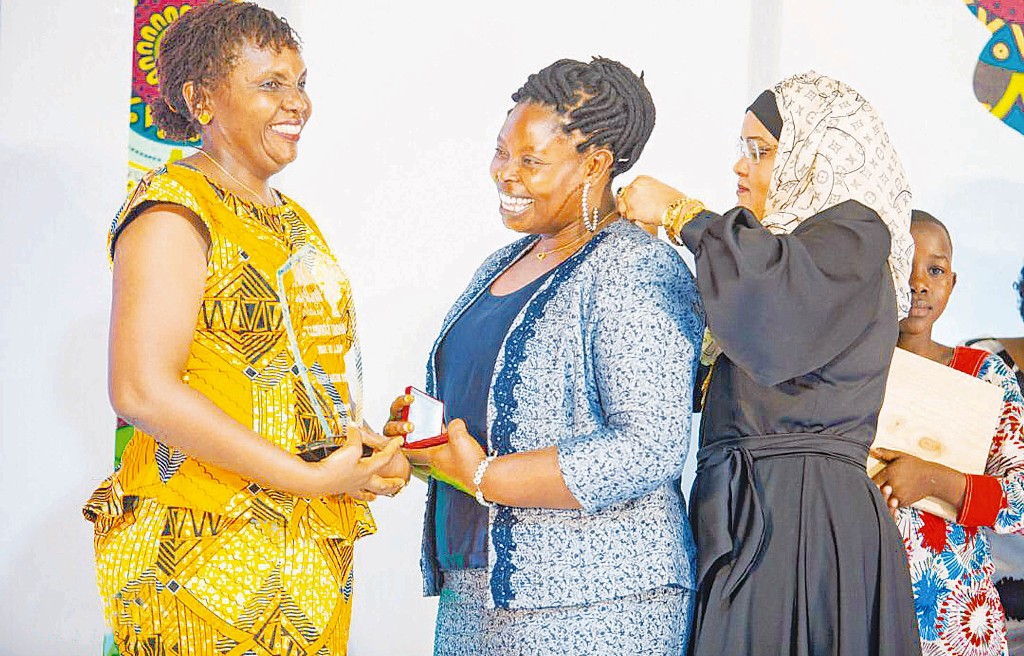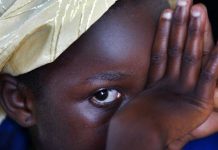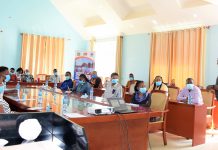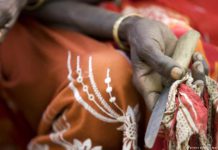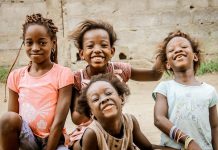RHOBI Samwelly still remembers that pain and discomfort she experienced when she was forced to undergo Female Genital Mutilation (FGM), though this happened more than 40 years ago.
In her own words, Rhobi says she doesn’t want to see or hear any more that young girls in Mara Region where she was born and still lives, are being subjected to FGM, a traditional harmful culture that ruins the dreams of their future.
She has thus dedicated a substantial part of her time fighting FGM in the region, to rescue young girls from going through a similar situation of which she once was a victim.
Ms Rhobi says she has managed to save over 1,000 girls aged between 6- 15 years, from being maimed by the crude tools of FGM, a cultural practice that is still widely embraced by communities in Mara Region.
“I have been fighting against FGM since 2012. I did not want to see these innocent girls suffer the way I did when I was young,” Rhobi said in an exclusive interview with the ‘Daily News’ a day after she was declared the overall winner for the 2019 Clouds TV Malkia wa Nguvu honorary award in Dar es Salaam on Monday this week.
In addition to the award, Ms Rhobi received a surprise gift from Dar es Salaam Regional Commissioner (RC), Mr Paul Makonda.
The RC promised to give her a vehicle that would be used to intensify her anti-FGM campaigns in Mara region.
Speaking during the Malkia wa Nguvu event, the RC congratulated Ms Rhobi for changing the FGM pain into a tool to fight the vice in her home region. “All (women) have done great things.
However, this mother (Rhobi) has gone extra miles, by transforming her pains into power to bring change in the community where she lives. What you are doing is indeed a blessing to society.
And when it comes to blessings, I always don’t want to be left out. So, I would like to give you a car to help boost your services to school girls,” Mr Makonda told Ms Rhobi.
Mara remains one of FGM notorious zones in the country, despite efforts by local and international organizations to end the practice in the region.
Ms Rhobi is the founder of Hope for Girls and Women Tanzania, a registered nongovernmental organization (NGO) that is committed to uprooting FGM and other gender based violence (GBV) practices in the region.
The NGO has safe house centres that shelter girls who flee their homes during FGM seasons. The safe houses are found in Serengeti and Butiama districts .
“Apart from providing anti- FGM education, I started the two safe houses which are Mugumu Hope centre and Butiama safe house, “ says Ms Rhobi who also doubles as Director for Hope for Girls and Women in Tanzania .
Before 2017, when Ms Rhobi founded (established ) the NGO , she worked with Anglican Church Diocese of Mara and also spearheaded establishment of the first safe house for girls escaping FGM in Serengeti district.
“ Since I joined this anti FGM battle, I have been able to start three safe house centres and over 1,000 girls have been saved from undergoing FGM “, she added.
She said the vehicle donated by the Dar es Salaam RC will help boost anti-FGM campaigns carried by her organisation. “ I’m very grateful to Mr Makonda .
The car will serve for transport as we go around disseminating anti- FGM education, as well as rescuing girls who are at risk of undergoing FGM”, said Ms Rhobi.
RC Makonda said he will hand over the car to Ms Rhobi next month during the May Day celebrations (labour day). Ms Rhobi also said the award she won came as big surprise .
“I’m really excited, the award has motivated me to continue saving more girls from undergoing FGM. And it is good to see that people are rallying behind me,” she further points out.
The award was presented to Ms Rhobi by Dr Getrude Mongela , former speaker of the African Union Parliament who also served as ex minister and in the African Legislative Assembly during a colourful function attended by Dar es Salaam RC and other dignitaries.
Hope for Girls and Women Tanzania is also offering vocational training and entrepreneurship to some girls who find it difficult to return to their homes after refusing to undergo FGM.
“The vocational and entrepreneurship opportunities are for girls who remain at the centre after FGM season. Some parents refuse to receive them back and those who are eligible to continue with other studies are supported to do so,” Ms Rhobi explained.
Ms Rhobi thanked all partners supporting her initiative to eliminate FGM and other GBV cases in the region. The partners included, the UK- based Tanzania Development Trust, United Nations Fund (UNFPA),Canadian Embassy in Tanzania, Netzwerk RAFAEL eV of Germany, Singita Grumeti , Nomad Tanzania , Police Force Gender and Children Desk Unit, Community and Social Development officials.
The NGO’s future plans include construction of a girls’ secondary school and a vocational training centre(VTC) in an effort to create education technical training opportunities for girls in the region, where a girl child is still seen as only important when it comes to the issue of marriage . Once a girl is married in Mara region, dowry is given to her parents in a form of cows.
Having large number of cows is also still considered as a sign of wealth. To make the matter worse, once a girl is mutilated she feels grown up enough to get married and gives little attention to education matters .
Consequently, FGM is regarded as the source of child marriage in the region. Tarime is leading in FGM practices in the region despite heavily funded anti-FGM campaigns by international organisations.
For example, more than 800 girls were reportedly mutilated in Tarime district in 2016. The number could be higher, according to local NGOs carrying out anti-FGM campaigns in the area.
Rhobi says she also plans to expand her anti-FGM and GBV campaigns to other regions whose communities still embrace these outdate ways of life. Apart from Mara the other regions are Arusha, Manyara, Dodoma and Singida.


